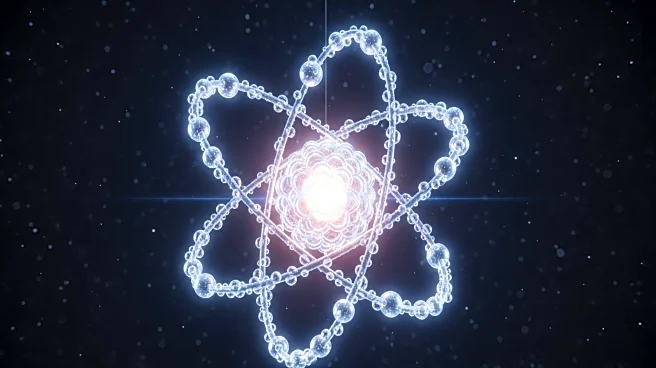What is the story about?
What's Happening?
The World Nuclear Association (WNA) has released a report forecasting a significant increase in uranium demand for nuclear reactors, projecting a 28% rise by 2030. This surge is attributed to the growing reliance on nuclear power by governments aiming to meet zero-carbon targets. The report highlights the need for new uranium mines and the restart of existing operations to accommodate this demand. Current mine supply is deemed adequate in the short term, but potential shortfalls are anticipated post-2030. The report also notes the geopolitical factors boosting interest in nuclear power, alongside the development of small modular reactors, which are easier and cheaper to build.
Why It's Important?
The projected increase in uranium demand underscores the pivotal role of nuclear energy in achieving global carbon reduction goals. This shift could significantly impact the energy sector, prompting investments in uranium mining and nuclear technology. Countries reconsidering nuclear energy policies may drive further demand, influencing global energy markets and potentially reducing reliance on fossil fuels. The development of small modular reactors could revolutionize the nuclear industry, offering more flexible and cost-effective solutions. However, the anticipated supply shortfalls post-2030 highlight the urgency for accelerated development of new uranium projects.
What's Next?
To address the forecasted supply shortfalls, the nuclear industry may see increased investment in uranium exploration and mining. Governments and companies might expedite the development of new projects to ensure a stable supply chain. Additionally, countries with existing nuclear phase-out policies may reassess their energy strategies, potentially leading to policy shifts that favor nuclear energy. The expansion of nuclear capacity, including the construction of new reactors, is expected to continue, driven by the need for clean energy solutions.
Beyond the Headlines
The growing demand for uranium and nuclear power raises ethical and environmental considerations. While nuclear energy offers a low-carbon alternative, concerns about nuclear waste management and safety persist. The geopolitical implications of increased nuclear reliance could also affect international relations, particularly in regions with existing tensions. The development of small modular reactors presents an opportunity to address some of these challenges, offering safer and more efficient nuclear solutions.
















